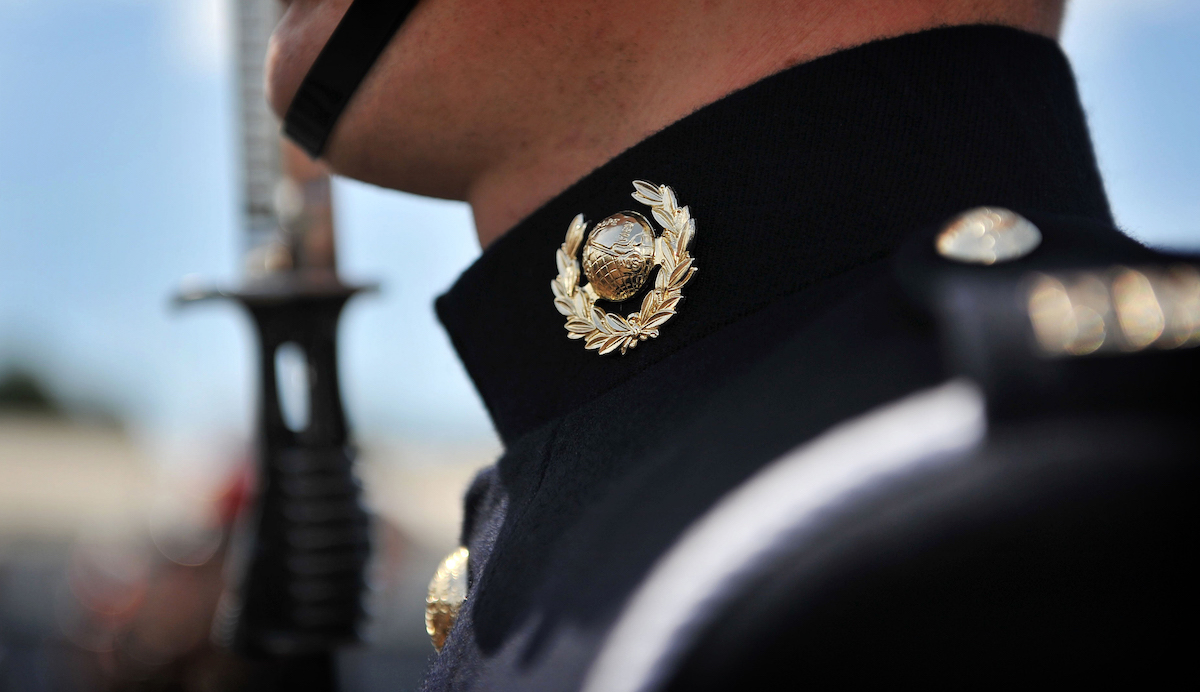A common mistake that many Marines make is to presume that following a Death in Service the government will pick up the bill, ensuring their family is financially secure after they’ve gone. Sadly this is not the case as some families find out to their cost, adding another level to the shock and grief suffered by those left behind.
Myth 1: The Government Will Pay
Not entirely. The government will pay some costs, including repatriation, a coffin, delivery to undertaker and a grant for a private funeral of £3,446, or otherwise you can opt for a Service funeral. That puts you in the ground, but it’s not a great send off (the average cost of dying is put at £8,905 according to SunLife) and it doesn’t go anywhere towards helping your survivors cope financially afterwards.
Changes to state benefits means that some of the benefits you might have expected have been cancelled and a new scheme is now in place. Widows, widower or surviving civil partners of anyone who died or dies after the 6 April 2017 (because of an accident at work or a disease caused by work) and has paid National Insurance contributions for at least 25 weeks, can claim Bereavement Support Payment.
This scheme replaces the Bereavement Allowance and Widowed Parent’s Allowance, and consists of a lump sum followed by 18 monthly payments. While the money is welcome, after 18 months your survivors will have to make ends meet by themselves.
Myth 2: My Armed Forces Pension Scheme Will Pay
True. Your Armed Forces Pension Scheme may pay out but there are conditions, such as having at least 2 years reckonable service. There are three Armed Forces Pension Schemes – AFPS 75, AFPS 05 and AFPS 15 – many Royal Marines will be a member of two schemes, either the AFPS 75 and AFPS 15 or the AFPS 05 and AFPS 15.
Under the AFPS 15 scheme (which was introduced in April 15) eligible dependants may receive benefits such as a tax-free lump sum and a taxable pension for life. For a Death in Service, your eligible partner will receive a tax-free lump sum of 4 times your final pensionable earnings. Therefore if you’re on a salary of approximately £25,000 this will be around £100,000. While this may help to pay off a mortgage, it doesn’t add up to much if it is needed as income over the years.
Your AFPS will also pay out a pension. Your spouse, civil partner or eligible partner will receive 62.5% of this award, while eligible children will share the remaining 37.5%, subject to a maximum of 25% per child. The value of the pension is calculated by multiplying your average salary by the number of years AFPS 15 service plus an enhancement.
This means that for younger Marines with only a few years of service under their belt, the pot will be significantly smaller than for those who have been paying in for longer. If you’re not sure what your dependents are eligible to receive in the event of your death, check with The Forces Pension Society to confirm calculations and get an accurate picture of what their situation might be.
Myth 3: My Partner Can Claim A War Widow’s or Widower’s Pension
Not any more. Only widows and widower’s whose spouse died prior to 6 April 2005 are eligible for this scheme. Instead the Army Forces Compensation Scheme (AFCS) replaces the War Pensions scheme.
Myth 4: They Can Claim Through The Armed Forces Compensation Scheme
Possibly. AFCS only pays out for a death attributed to service (so serving Marines who die for reason unrelated to their service are excluded). But if eligible it could include a Survivors’ Guaranteed Income Payment (SGIP), Child Payments and a Bereavement Grant of up to £37,500. However, payments are based on the deceased’s salary and age at death, which can leave the families of younger Marines on lower salaries without sufficient income to live comfortably.
The Bereavement Grant is only designed to supplement the lump sum paid under the Armed Forces Pension Scheme, so after pension scheme payments may not amount to much.
It is calculated that to raise a child from 0 to 21 years it costs parents over £230,000. Will your AFPS and any benefits cover that? Consider too how debts will be paid off including mortgages, car loans and credit cards, especially if your family currently relies solely on your income.
If your spouse or civil partner is at home raising the children, your death could result in them losing the house, car, and really struggling to make ends meet. The impact on your children could be with them for the rest of their lives as statistically those on lower incomes or in poverty do less well at school and afterwards.
Myth 5: ‘Normal’ Insurance Providers Don’t Offer Marines Life Cover
Not true. Many people in the Armed Forces assume that because of the nature of their job, they won’t qualify for a ‘normal’ life insurance policy. Fortunately this myth is incorrect. You can get life cover even if you do a risky job. I’ve sourced policies with significant death benefits for as little as £10 p/m for Special Ops – some insurance companies are willing to provide cover. Life cover can make up the shortfall that the government schemes do not, so it’s well worth considering for your peace of mind and for ensuring that your family get the financial support they might need.
I’ll be exploring life insurance in more detail in a future blog post. In the meantime if you want to discuss any of the above or would like some help with the figures to work out what support will be available to your loved ones should you die in Service, please get in touch.
Call 08458 622789 or email [email protected]




[…] Previous […]